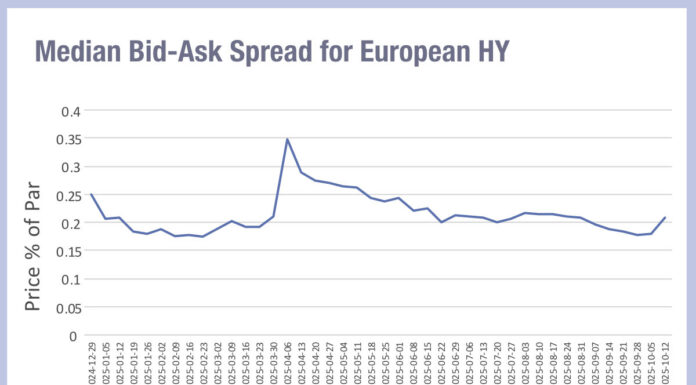By Flora McFarlane.
Analyst firm Greenwich Associate’s report on investment banks trading European fixed income, has indicated that the first half of 2017’s buoyancy on the end of 2016 might be short-lived.
According to the ‘2017 European Fixed Income Leaders’ In the second half of the year, returns have been falling and over the year, lower volatility has affected banks’ revenues, leading to increased competition for the sell-side. Added to this, the future unknown of MiFID II and a possible shift in the credit cycle means the upcoming quarters could be more painful.
Satnam Sohal, Greenwich Associates consultant, says: “We have seen falling revenues on the fixed income side because overall during the year there has been little volatility, with less trading happening. This affects the opportunity for the sell-side to make money.”
In the survey conducted by Greenwich over May and July 2017, Greenwich interviewed over 1000 fixed income investment professionals across Europe to give a view on the market.
In terms of business success, JP Morgan continues to lead the European fixed-income market share overall, leading the rates market alongside Barclays, as well as taking joint top spot with Citi in the credit market. Goldman Sachs, HSBC, BNP Paribas, and Bank of America Merrill Lynch make up the rest of the market share in fourth and joint fifth positions, respectively.
JP Morgan, Barclays and Citi not only retained their spot as the top three dealers, but increased their combined market share by 2.1%. Sohal, however, sees more European banks picking up the pace over the next year and challenging the US banks which are doing well.
“We have seen that the number of banks that have been losing share over the past few years has stabilised. European banks will be ready to start turning the corner. If you look at the hiring patterns, I would expect that next year there would be some de-concentration.”
Electronic trading was a surprising loser in the growth of fixed income, with e-trading witnessing a plateau of growth overall. While other asset classes have witnessed greater uptake in electronification, the challenges the fixed income space poses mean it has taken longer to evolve.
Activity that does occur electronically is concentrated in the market’s biggest dealers, with JP Morgan, Citi, and Barclays holding top spots for e-trading in Greenwich’s rankings. Greenwich said that these names are the top firms for e-trading overall, however within individual asset classes there are other names that are notable.
Barclays and Citi are ranked first for European fixed income e-trading market penetration in rates, while JP Morgan leads in the credit space, followed by Citi and Barclays.
Market participants are still investing in the technology needed for algorithmic pricing, however, and the slowdown in e- trading, could result from MiFID II preparations, according to Sohal.
“The sense we get is that clients have been focused on meeting regulatory requirements. They have probably not taken a bigger vision yet to see whether there should be workflow changes, which would guide and drive more business towards electronic trading.”
©TheDESK 2017
©Markets Media Europe 2025












